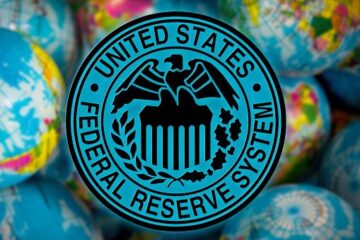Government stimulus programs are generally enacted to increase economic activity during difficult financial times. One example is the payments that were sent to individuals and businesses during the Covid pandemic when the health emergency caused global commerce to stall.
But other government actions can also result in economic stimuli, even when the expressed purpose of a program is explained in terms of solving a different problem.
Don’t miss the move: Subscribe to TheStreet’s free daily newsletter
Consider the federal action sought by President Joe Biden to enact a student loan forgiveness program, for example. The plan is designed to provide relief to millions of borrowers who are having difficulty meeting their financial obligations due to burdensome payments they have to make on their student loan debt.
But one positive financial impact of releasing a large number of Americans from debt obligations is likely: a stimulus in the home purchasing market.
That’s because many people have put off buying a house until their student loan debt is paid. The thought of combining those monthly bills with new mortgage payments is too much financial pressure for many to want to consider.
With that in mind, one can view the student loan forgiveness program as a backdoor stimulus plan that might help boost activity in the housing market.
But there is one major problem: Due to ongoing legal maneuvers, the debt relief program has been experiencing delays for years.
Related: Student loan forgiveness to give millions of Americans a stimulus payment
Student loan forgiveness program blocked by federal judge
On Oct. 1, a federal judge in the Southern District of Georgia allowed an existing restraining order on Biden’s student loan forgiveness program to expire, temporarily allowing it to move forward.
The restraining order was in place because a number of states had argued the program was illegal and would cause them harm. But the judge, Randal Hall, ruled that the state of Georgia had not provided enough evidence of that potential harm.
More on student loans
Major student loan company forced to pay $120 million for bad behavior Average Americans are not prioritizing 401(k)s, student loans, and family planning Biden’s student debt relief plan will remain blocked, judge orders
On Oct. 3, Eastern District of Missouri Judge Matthew Schelp stepped in, issuing a preliminary injunction that was sought by the states involved in the lawsuit. This legal action once again successfully blocked the student loan forgiveness plan.
The states argue that the Missouri Higher Education Loan Authority (MOHELA), a student loan servicer that administers both federal and private student loans, faces a big potential loss. That, the states say, gives Missouri a legal basis on which to sue.
A man is seen calculating his finances. The Biden Administration’s student loan forgiveness program has been blocked by a Missouri District Court judge’s preliminary injunction.
Shutterstock
Previous student loan forgiveness plan failed at Supreme Court in 2023
Missouri Attorney General Andrew Bailey had been part of a challenge to an earlier student loan forgiveness plan that the U.S. Supreme Court struck down in June 2023.
That lawsuit had also argued that MOHELA would be “negatively impacted” by the student debt relief program.
Related: Biden White House erases another $1.2 billion in student debt
“Missouri’s lawsuit argues that creating a roughly half-trillion-dollar loan-cancellation program that extends to nearly all borrowers is a stunning exertion of power and a matter of great economic and political significance,” Bailey had said in a statement at the time.
“Balancing the harm and the injury, merged with the public’s interest, easily leads this Court to the conclusion that preliminary injunctive relief should issue,” Judge Schelp wrote in the Oct. 3 order. “The public has an immense interest in its own government following the law.”
Related: Veteran fund manager sees world of pain coming for stocks


